December 2021 Newsletter
Inclusivity, Equity, and Diversity During December
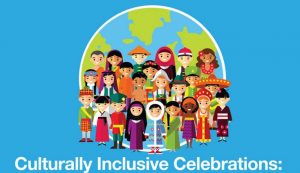 December is a month full of celebration, family, and merriment. There are holidays this month that are observed by religious and cultural groups. Our Jewish friends recognize Hanukkah from Sunday, November 28, 2021 to Monday, December 6, 2021. Christmas celebrations and observances occur on December 25, 2021. African-American families will participate in festivities associated with Kwanzaa. This month I encourage educators to not only discuss, share, and celebrate the holidays that are familiar to them, but if time allows, to introduce some that may be unfamiliar to students. As we continue to strive for inclusivity, equity, and diversity in our social studies classroom, this month makes it a little easier to continue to practice “Windows, Mirrors, and Sliding Glass Doors”. Below are resources and tips to ensure student inclusivity and also help with teaching about both the well and lesser-known December holidays.
December is a month full of celebration, family, and merriment. There are holidays this month that are observed by religious and cultural groups. Our Jewish friends recognize Hanukkah from Sunday, November 28, 2021 to Monday, December 6, 2021. Christmas celebrations and observances occur on December 25, 2021. African-American families will participate in festivities associated with Kwanzaa. This month I encourage educators to not only discuss, share, and celebrate the holidays that are familiar to them, but if time allows, to introduce some that may be unfamiliar to students. As we continue to strive for inclusivity, equity, and diversity in our social studies classroom, this month makes it a little easier to continue to practice “Windows, Mirrors, and Sliding Glass Doors”. Below are resources and tips to ensure student inclusivity and also help with teaching about both the well and lesser-known December holidays.
Tips for Teaching During the Holidays
- Teaching About the Holidays in Public School
- Culturally Responsive Instruction for Holiday and Religious Celebrations
- How Do You Celebrate? An Introduction to Holiday Customs (Elementary)
- The December Dilemma: Acknowledging Religious Holidays in the Classroom
Hanukkah
- How Do We Celebrate? A Cultural History of Hanukkah (Virtual Discussion)
- Hanukkah by Mayim Bialik (Video)
- Educational Resources for Chanukah
- Hanukkah 101
Christmas
- Let’s Celebrate Christmas (Elementary)
- Surprising Origins of Modern-Day Christmas Traditions
- A History of Christmas
- Charles Dickens Christmas!
Kwanzaa
- Official Kwanzaa Website
- Celebrate Kwanzaa in the United States (Elementary)
- Kwanzaa – All About the Holidays
- Kwanzaa First Fruits – National Museum of African-American History and Culture
Three Kings Day (January Holiday)
- When is Three Kings Day and How is it Celebrated?
- How Three Kings Day is Celebrated
- Discovering the Magic of Three Kings Day From Puerto Rico to the U.S.
Islam and the Winter Season
National Pearl Harbor Remembrance Day
- Pearl Harbor – National Park Service
- Pearl Harbor Education Resources – National WWII Museum
- The Road to Pearl Harbor: The United States and East Asia, 1915–1941
- Remembering Pearl Harbor – The National Archives
Bill of Rights Day
- Bill of Rights Day, December 15 – The National Archives
- Bill of Rights Day – United States Courts
- Bill of Rights Day – National Constitution Center
- Bill of Rights Institute
Pledge of Allegiance Day
- Teacher’s Guide to the Pledge of Allegiance
- I Pledge Allegiance… And Know What It Means (Elementary)
- Examining the Pledge of Allegiance
- Tracing the Evolution of the Pledge of Allegiance (Elementary)
Universal Human Rights Month
World101
 High-quality, standards-aligned classroom resources, lesson plans, teaching inspiration, and professional development opportunities—all inspired by our mission that Global Civics is essential for twenty-first century citizenship. World101 is a growing library of free multimedia resources that provide an immersive learning experience in a variety of settings: in classrooms, in corporate training rooms, and at home. Through its entertaining, interactive story-telling, World101 makes complex international relations and foreign policy issues accessible to learners both inside and outside formal academic settings. World101 will help the American public build an understanding of today’s most pressing issues and how those issues are relevant to them, thus preparing them to make informed choices of public officials (and hold them accountable), compete on a global stage, invest in their futures, and make a difference.
High-quality, standards-aligned classroom resources, lesson plans, teaching inspiration, and professional development opportunities—all inspired by our mission that Global Civics is essential for twenty-first century citizenship. World101 is a growing library of free multimedia resources that provide an immersive learning experience in a variety of settings: in classrooms, in corporate training rooms, and at home. Through its entertaining, interactive story-telling, World101 makes complex international relations and foreign policy issues accessible to learners both inside and outside formal academic settings. World101 will help the American public build an understanding of today’s most pressing issues and how those issues are relevant to them, thus preparing them to make informed choices of public officials (and hold them accountable), compete on a global stage, invest in their futures, and make a difference.
Humanities Nebraska Speakers Bureau
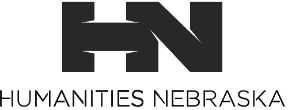 Humanities Nebraska has announced that 31 topics from its Speakers Bureau have been specially selected to represent a special initiative by the National Endowment for the Humanities. “A More Perfect Union” is intended to advance civic education nationwide as we approach the United States of America’s 250th Anniversary. The goal of this initiative is to help Americans better understand the world’s oldest constitutional democracy and how our founding ideals are met in a pluralistic society.
Humanities Nebraska has announced that 31 topics from its Speakers Bureau have been specially selected to represent a special initiative by the National Endowment for the Humanities. “A More Perfect Union” is intended to advance civic education nationwide as we approach the United States of America’s 250th Anniversary. The goal of this initiative is to help Americans better understand the world’s oldest constitutional democracy and how our founding ideals are met in a pluralistic society.
Members of the Humanities Nebraska Speakers Bureau are screened through an auditioning process to ensure that audiences will receive a high-quality educational experience. To assist libraries, schools, clubs and other organizations in planning a speaker event or series, programs from this list are available at a special rate of $25 for the first application in a calendar year and $50 for a second application in the same calendar year. The usual two application limit is also waived, allowing a third application from this list at the $50 rate. For a full listing of topics, please go to our website: https://humanitiesnebraska.org/catalog/diverse-us-history/
Books of the Month
December “Books of the Month”
Educated
 by: Tara Westover
by: Tara Westover
Educated (2018) is a memoir by the American author Tara Westover. Westover recounts overcoming her survivalist Mormon family in order to go to college, and emphasizes the importance of education in enlarging her world. She details her journey from her isolated life in the mountains of Idaho to completing a PhD program in history at Cambridge University. She started college at the age of 17 having had no formal education. She explores her struggle to reconcile her desire to learn with the world she inhabited with her father.
How to Educate An American
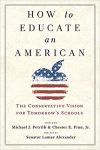 by: Michael J. Petrilli & Chester E. Finn, Jr.
by: Michael J. Petrilli & Chester E. Finn, Jr.
In the years after A Nation at Risk, conservatives’ ideas to reform America’s lagging education system gained much traction. Key items like school choice and rigorous academic standards drew bipartisan support and were put into practice across the country.
Today, these gains are in retreat, ceding ground to progressive nostrums that do little to boost the skills and knowledge of young people. Far from being discouraged, however, conservatives should seize the moment to refresh their vision of quality K–12 education for today’s America. These essays by 20 leading conservative thinkers do just that.
How the Word is Passed
 by: Clint Smith
by: Clint Smith
Beginning in his own hometown of New Orleans, Clint Smith leads the reader through an unforgettable tour of monuments and landmarks—those that are honest about the past and those that are not—that offer an intergenerational story of how slavery has been central in shaping our nation’s collective history, and ourselves.
Paper Trials
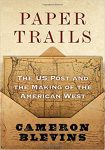 by: Cameron Blevins
by: Cameron Blevins
Cameron Blevins argues that the US Post wove together two of the era’s defining projects: western expansion and the growth of state power. Between the 1860s and the early 1900s, the western United States underwent a truly dramatic reorganization of people, land, capital, and resources. It had taken Anglo-Americans the better part of two hundred years to occupy the eastern half of the continent, yet they occupied the West within a single generation. As millions of settlers moved into the region, they relied on letters and newspapers, magazines and pamphlets, petitions and money orders to stay connected to the wider world.
Retro Report
 Retro Report is a non-profit journalism organization. In your classroom, we can help foster engagement and critical thinking skills with over 250 short videos that connect history to today.
Retro Report is a non-profit journalism organization. In your classroom, we can help foster engagement and critical thinking skills with over 250 short videos that connect history to today.
Our videos are perfect for many classroom subjects, particularly U.S. History, Civics & Government, Media Literacy, World History, Psychology, and Environmental Studies.
All of our videos, lessons, and student activities are completely FREE.
Our Director of Education, David Olson, spent over 15 years leading Middle School, High School, and College classrooms. Our goal at Retro Report is to meet the needs of educators and provide high quality, FREE materials to help connect past and present.
Kialo Edu
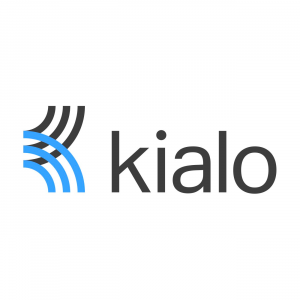 Kialo is a public discussion platform designed to facilitate reasoned debates about complex topics online. Since we first launched in the fall of 2017, we’ve grown into a community with thousands of debates and millions of contributions.
Kialo is a public discussion platform designed to facilitate reasoned debates about complex topics online. Since we first launched in the fall of 2017, we’ve grown into a community with thousands of debates and millions of contributions.
Our mission is to make the world a more thoughtful place, and we believe education is crucial in achieving that. With clear visualization of arguments and with powerful, easy to use navigation tools, Kialo is the perfect resource to help students master critical thinking and reasoning skills.
From the very start, academics have recognized the potential of our platform for educational and research applications. Many academics see Kialo as a solution to the many issues existing in online discourse today. Many teachers have approached us, asking if there were any plans to make an education-focused version of Kialo. We are proud to say that Kialo Edu is now launched and fully operational!
Kialo Edu allows educators to curate spaces for students to work through complex subjects together, while giving students the space to ask questions, discuss, and evaluate new ideas.
Professional Learning Opportunity
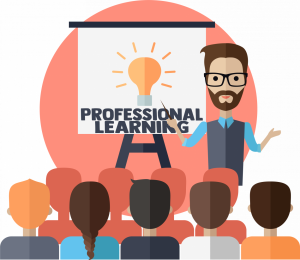 Katrina Gotschall, Social Studies and 7-12 ELA PD Coordinator for ESU 8 in Neligh, Nebraska is looking into creating a learning opportunity for 7-12 Social Studies teachers and 7-12 ELA teachers who teach about The Holocaust and Genocide to come together at Kansas City’s traveling exhibit “Auschwitz. Not Long Ago. Not Far Away” which will be on display at Union Station through March 20, 2022. We would be using the lens of the Inquiry Design Model to explore the exhibit and discussing trauma informed best practices when teaching about The Holocaust.
Katrina Gotschall, Social Studies and 7-12 ELA PD Coordinator for ESU 8 in Neligh, Nebraska is looking into creating a learning opportunity for 7-12 Social Studies teachers and 7-12 ELA teachers who teach about The Holocaust and Genocide to come together at Kansas City’s traveling exhibit “Auschwitz. Not Long Ago. Not Far Away” which will be on display at Union Station through March 20, 2022. We would be using the lens of the Inquiry Design Model to explore the exhibit and discussing trauma informed best practices when teaching about The Holocaust.
She would like to gather some feedback on whether teachers from around the state may be interested in an opportunity like this. Would you take a few minutes to complete this interest survey? You are not committing to anything by completing the survey, but if you answer “yes” to the survey, we will follow up with your after all feedback has been collected and reviewed.
The survey will close Tuesday, December 7th.
Thank you for taking the time to complete this interest survey! If you have any questions, please feel free to email me at katrina.gotschall@esu8ne.org
Nebraska Story Map Competition 2022
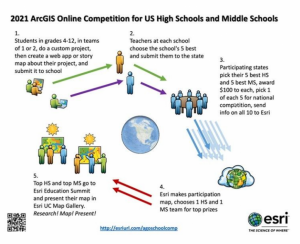 The Nebraska Story Map Competition encourages students to use a powerful mapping application called geographic information systems (GIS) to research and analyze some aspects of Nebraska. Students will showcase their results in a story map. This online competition is open to students in high school grades 9-12 or middle school grades 4-8. Students can complete a map project in a team of 1 or 2 students.
The Nebraska Story Map Competition encourages students to use a powerful mapping application called geographic information systems (GIS) to research and analyze some aspects of Nebraska. Students will showcase their results in a story map. This online competition is open to students in high school grades 9-12 or middle school grades 4-8. Students can complete a map project in a team of 1 or 2 students.
The 5 best HS + 5 best MS map entries will be awarded $100 each. Two-member student teams will divide the cash award. FYI- we have had no middle school student map entries since 2018. Let’s change this!
This URL Nebraska Story Map Competition 2022 (arcgis.com) provides a description of the competition, showcases last year’s top 5 HS student maps, and tutorials on how to use the GIS mapping software called ArcGIS Online. Contact Dr. Lesli Rawlings at lerawli1@wsc.edu if you have any questions about the competition or want more information.
Data USA
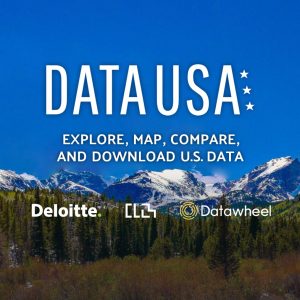 In 2014, Deloitte, Datawheel, and Cesar Hidalgo, Professor at the MIT Media Lab and Director of Collective Learning, came together to embark on an ambitious journey — to understand and visualize the critical issues facing the United States in areas like jobs, skills and education across industry and geography. And, to use this knowledge to inform decision making among executives, policymakers and citizens.
In 2014, Deloitte, Datawheel, and Cesar Hidalgo, Professor at the MIT Media Lab and Director of Collective Learning, came together to embark on an ambitious journey — to understand and visualize the critical issues facing the United States in areas like jobs, skills and education across industry and geography. And, to use this knowledge to inform decision making among executives, policymakers and citizens.
Our team, comprised of economists, data scientists, designers, researchers and business executives, worked for over a year with input from policymakers, government officials and everyday citizens to develop Data USA, the most comprehensive website and visualization engine of public US Government data. Data USA tells millions of stories about America. Through advanced data analytics and visualization, it tells stories about: places in America—towns, cities and states; occupations, from teachers to welders to web developers; industries–where they are thriving, where they are declining and their interconnectedness to each other; and education and skills, from where is the best place to live if you’re a computer science major to the key skills needed to be an accountant.
Data USA puts public US Government data in your hands. Instead of searching through multiple data sources that are often incomplete and difficult to access, you can simply point to Data USA to answer your questions. Data USA provides an open, easy-to-use platform that turns data into knowledge. It allows millions of people to conduct their own analyses and create their own stories about America – its people, places, industries, skill sets and educational institutions. Ultimately, accelerating society’s ability to learn and better understand itself.
Voices of Democracy
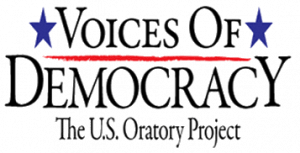 Voices of Democracy promotes the study of great speeches and debates in U.S. history. The project features the words of those who have defined the country’s guiding principles, debated controversial social and political issues, and shaped the identity and character of the American people. The project aims to foster an understanding of the nation’s principles and history and to promote civic engagement among scholars, teachers, and students.
Voices of Democracy promotes the study of great speeches and debates in U.S. history. The project features the words of those who have defined the country’s guiding principles, debated controversial social and political issues, and shaped the identity and character of the American people. The project aims to foster an understanding of the nation’s principles and history and to promote civic engagement among scholars, teachers, and students.
On this site, you will find authenticated speech texts, scholarly articles with critical analyses of those speeches, curriculum materials designed for undergraduate teachers and students, and lesson plans for high school and middle school teachers.
2022 John F. Kennedy Profile in Courage in Essay Contest
Describe and analyze an act of political courage by a US elected official who served during or after 1917.
To learn more about political courage, visit Contest Information and FAQs.
All submissions must adhere to contest requirements.
Contest Deadline
The Profile in Courage Essay Contest opens for submissions on September 1, 2021. The contest deadline is January 14, 2022.
First-place: $10,000
Second-place: $3,000
Five Finalists: $1,000 each
Eight Semi-finalists: $100 each
Get Email Updates
Join our mailing list to get contest tips, updates, and a reminder to submit your essay.
The John F. Kennedy Presidential Library and Museum does not sell or share your personal information or email address.
2022 Summer Professional Development Opportunities in Social Studies
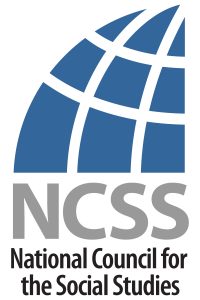 This document was compiled by the Council of State Social Studies Supervisors as a way to communicate the wealth of professional development opportunities available to social studies educators. A special thanks to all of the organizations who helped contribute to this work and to the many organizations who are offering high quality social studies professional development for social studies teachers across the country. Many of the opportunities below are offered free or low cost, but some opportunities do have a cost. When opportunities are highlighted in yellow, it means there are not yet 2022 updates for that particular program. The document will be updated through the spring of 2022. Please email Stefanie Wager at stefanie.rosenbergwager@gmail.com with any questions, comments, or to add programs to this list.
This document was compiled by the Council of State Social Studies Supervisors as a way to communicate the wealth of professional development opportunities available to social studies educators. A special thanks to all of the organizations who helped contribute to this work and to the many organizations who are offering high quality social studies professional development for social studies teachers across the country. Many of the opportunities below are offered free or low cost, but some opportunities do have a cost. When opportunities are highlighted in yellow, it means there are not yet 2022 updates for that particular program. The document will be updated through the spring of 2022. Please email Stefanie Wager at stefanie.rosenbergwager@gmail.com with any questions, comments, or to add programs to this list.
Constitute Project
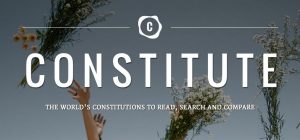 New constitutions are written every year. The people who write these important documents need to read and analyze texts from other places. And citizens need to know, and to be able to understand, what’s in their countries’ foundational documents. Constitute offers access to the world’s constitutions so that users can systematically compare them across a broad set of topics—using an inviting, clean interface.
New constitutions are written every year. The people who write these important documents need to read and analyze texts from other places. And citizens need to know, and to be able to understand, what’s in their countries’ foundational documents. Constitute offers access to the world’s constitutions so that users can systematically compare them across a broad set of topics—using an inviting, clean interface.
Constitute allows you to interact with the world’s constitutions in a few different ways.
- Quickly find relevant passages. The Comparative Constitutions Project (CCP) has tagged passages of each constitution with a topic—e.g., “right to privacy” or “equality regardless of gender”—so you can quickly find relevant excerpts on a particular subject, no matter how they are worded. You can browse the 300+ topics via the “Search | Topics | Filters” menu on the Constitutions page, or see suggested topics while typing in the search bar (which also lets you perform free-text queries).
- Filter searches. Want to view results for a specific region or time period, or explore draft or historical texts? You can limit your search by specific parameters using the “Filters” options in the “Search | Topics | Filters” menu.
- Read excerpts in List or Compare view. You can view searched excerpts within the default “List View,” or you can view two texts (or just their excerpts) side-by-side in “Compare View,” still with the same search functionality.
- Pin for further analysis. Pin excerpts, comparisons, or searches by clicking the “pin” button next to an expanded passage, the pin button at the top of the search results page, or the pin button on the right side of the comparison page. You can then view and download your pinned content by clicking on the “Pinned” link in the upper right section of the Constitutions page. Pinned items can be exported to Google Docs, rendered in PDF, or downloaded in .csv.
Furthermore, all of Constitute’s URLs are deep links, meaning you can link to a particular topic search, constitutional comparison, or even a specific constitutional provision directly, or share them on your social media accounts.
The Countries, Topics, and Data Stories sections of the website allow users to learn more about each country’s constitutional history, explore CCP’s inventory of constitutional topics, or dig deeper into analyzing the data.
Civics! An American Musical
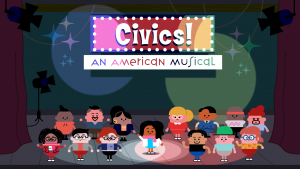 Do your students have what it takes to be the next hit Broadway musical producers? In this free civics learning game, students assume the role of a theater producer adapting true events from United States history to the stage. It’s up to them to analyze primary sources from the Library of Congress to create a new smash Broadway musical hit that is historically accurate and celebrates the power of ordinary citizens in creating change. Students work with different theatrical departments to learn about important aspects of creating a musical, such as costuming, set design, writing, and music. Once all the mini-games are complete, they are rewarded with a scene from their musical on opening night, completely personalized based on the creative choices they made during their game experience.
Do your students have what it takes to be the next hit Broadway musical producers? In this free civics learning game, students assume the role of a theater producer adapting true events from United States history to the stage. It’s up to them to analyze primary sources from the Library of Congress to create a new smash Broadway musical hit that is historically accurate and celebrates the power of ordinary citizens in creating change. Students work with different theatrical departments to learn about important aspects of creating a musical, such as costuming, set design, writing, and music. Once all the mini-games are complete, they are rewarded with a scene from their musical on opening night, completely personalized based on the creative choices they made during their game experience.
Play for free now!
Yale-New Haven Teachers Institute
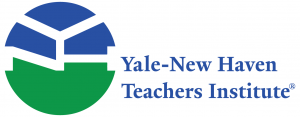 The Yale-New Haven Teachers Institute® is an educational partnership between Yale University and the New Haven Public Schools designed to strengthen teaching and learning in local schools and, by example and direct assistance, in high-need schools across the country. Through the Institute, Yale faculty members and New Haven school teachers work together in a collegial relationship. The Institute is also an interschool and interdisciplinary forum for teachers to collaborate on new curricula.
The Yale-New Haven Teachers Institute® is an educational partnership between Yale University and the New Haven Public Schools designed to strengthen teaching and learning in local schools and, by example and direct assistance, in high-need schools across the country. Through the Institute, Yale faculty members and New Haven school teachers work together in a collegial relationship. The Institute is also an interschool and interdisciplinary forum for teachers to collaborate on new curricula.
Each teacher participating as a Fellow in an Institute seminar with a Yale faculty member studies the seminar subject and prepares a curriculum unit to be taught during the following year. In this way teachers deepen their knowledge of the subjects they teach and develop new curricular material to engage and educate the students in their school courses.
You can view the curriculum units by searching the topical index or the volumes of units published each year.
Curriculum units, the product of the Fellows’ seminar experience, are designed to teach their own students about the seminar subject. Each curriculum unit contains: content objectives – a clear statement of the subject matter the unit seeks to cover; teaching strategies – a unified, coherent teaching plan for those objectives; classroom activities; resources for teachers and students; and an appendix on how the unit implements academic standards of the school district.
ePals
 Our ePals Global Community® pairs educators and students around the world in exciting project-based learning for language learning practice and cultural exchange.
Our ePals Global Community® pairs educators and students around the world in exciting project-based learning for language learning practice and cultural exchange.
ePals is a website that connects K-12 classrooms in more than 99 countries to share content and ideas and collaborate on projects (including pen pal exchanges). Teachers create a profile with a brief description about who they’re hoping to connect with and why; for example, a third-grade class that would like to meet French-speaking students to collaborate on a global green living project. Teachers can search for partner classrooms by language, age, and keyword, and can also factor in region/country and class size. The system will also recommend classrooms. Once connected, classes can communicate through a private workspace on the site.
Educators can apply safety filters to each student in their virtual classroom. They can choose to moderate all student messages before they’re sent, to receive copies of all messages once they’re delivered, or just moderate messages that contain flagged content, or opt for open communication with no teacher moderation. Teachers can also access lesson plan ideas and other resources on the site.
SlaveVoyages
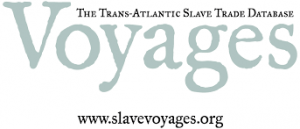 Explore the dispersal of enslaved Africans across the Atlantic world.
Explore the dispersal of enslaved Africans across the Atlantic world.
This digital memorial raises questions about the largest slave trades in history and offers access to the documentation available to answer them. European colonizers turned to Africa for enslaved laborers to build the cities and extract the resources of the Americas. They forced millions of Africans across the Atlantic to the Americas, and from one part of the Americas to another. Analyze these slave trades and view interactive maps, timelines, and animations to see the dispersal in action.
The Trans-Atlantic and Intra-American slave trade databases are the culmination of several decades of independent and collaborative research by scholars drawing upon data in libraries and archives around the Atlantic world. The new SlaveVoyages website itself is the product of three years of development by a multi-disciplinary team of historians, librarians, curriculum specialists, cartographers, computer programmers, and web designers, in consultation with scholars of the slave trade from universities in Europe, Africa, South America, and North America. The National Endowment for the Humanities was the principal sponsor of this work carried out originally at Emory Center for Digital Scholarship, the University of California at Irvine, and the University of California at Santa Cruz. The Hutchins Center of Harvard University has also provided support. The website is currently hosted at Rice University.



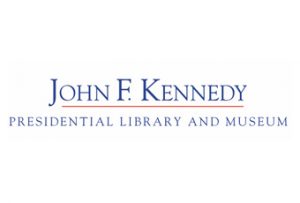 Contest Topic
Contest Topic